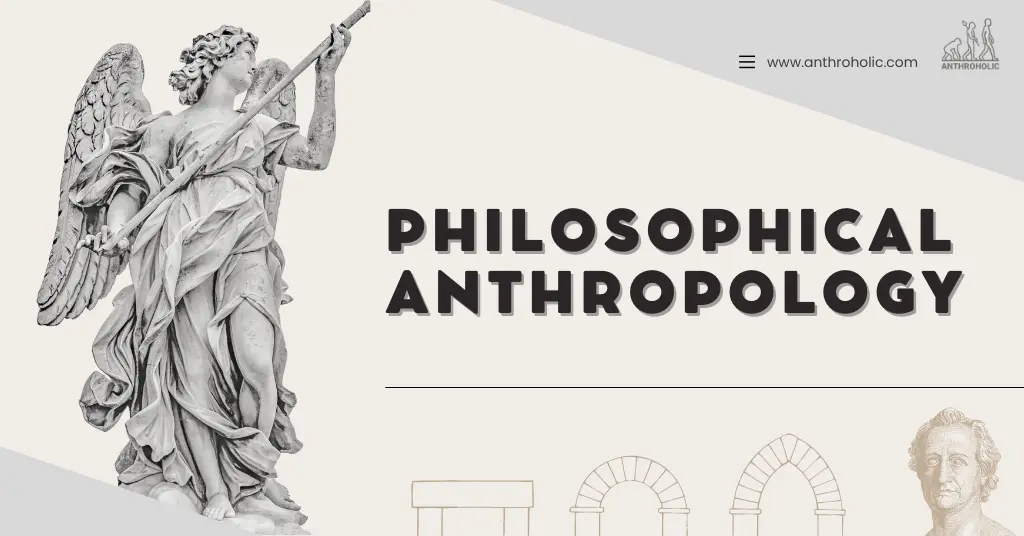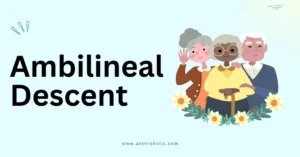AI Answer Evaluation Platform Live Now. Try Free Answer Evaluation Now
Philosophical Anthropology
Philosophical anthropology is a field of study that explores what it means to be human, our unique qualities, and how we fit into the world around us. It is an exciting subject, as it combines philosophy, anthropology, and even psychology.

What is Philosophical Anthropology?
Philosophical anthropology is a branch of philosophy that seeks to understand humans, their nature, and their place in the world. It examines the various aspects of human life, including our thoughts, emotions, relationships, and culture. By doing so, it helps us make sense of our existence and the meaning of our lives.
The Human Condition: A Unique Perspective
One of the main focuses of philosophical anthropology is the human condition, which refers to the unique qualities and experiences that make us human. The human condition includes our ability to think, create, feel emotions, and communicate with others. These qualities set us apart from other animals and help shape our lives.
For example, humans are the only creatures capable of creating complex tools, such as computers and airplanes, which have revolutionized our world. We are also the only beings who can create art, music, and literature, allowing us to express our emotions and share our experiences with others.
The Mind-Body Problem: A Puzzling Dilemma
A major question in philosophical anthropology is the mind-body problem, which explores the relationship between our minds (thoughts, feelings) and our bodies (physical existence). Are our minds separate from our bodies, or are they one and the same?
For example, imagine you’re playing a video game. Your body is sitting on a couch, holding a controller, while your mind is immersed in the game world. Are your mind and body separate entities, or are they interconnected parts of the same whole? Philosophers continue to debate this question, and there is still much to discover about the mind-body relationship.
Free Will vs. Determinism: Do We Control Our Destiny?
Another important question in philosophical anthropology is whether humans have free will or if our actions are predetermined. Free will means that we have the power to choose our actions, while determinism suggests that our actions are dictated by factors beyond our control, such as our genetics or environment.
Think about your favorite ice cream flavor. Did you choose it because you genuinely like it, or was your preference determined by your upbringing and taste buds? The debate between free will and determinism is complex and continues to be a central topic in philosophical anthropology.
The Search for Meaning: Creating Purpose in Life
Humans have an innate desire to find meaning and purpose in life, which sets us apart from other animals. Philosophical anthropology explores how we create meaning in our lives through our relationships, work, and personal beliefs.
For example, some people find meaning in their careers, while others find it in their relationships with family and friends. Additionally, religion and spirituality can provide a sense of purpose and direction for many individuals. Philosophical anthropology helps us understand the different ways humans seek meaning and fulfillment in their lives.
Cultural Diversity: Understanding Our Differences
Philosophical anthropology also studies cultural diversity and how it shapes our thoughts, beliefs, and behaviors. Every culture has its unique customs, values, and ways of life, which can teach us about the different aspects of human nature.
For instance, the Japanese concept of “ikigai” refers to a person’s reason for being or their life’s purpose. In Western cultures, the pursuit of happiness is often seen as a primary goal. By examining these cultural differences, philosophical anthropology helps us appreciate the richness and variety of human experiences.
Ethics and Morality: Guiding Our Actions
Ethics and morality are essential components of philosophical anthropology. Ethics is the study of what is right and wrong, while morality is the set of principles and values that guide our actions. By understanding ethical and moral concepts, we can better navigate the complex world and make informed decisions.
For example, imagine you found a wallet on the street. Would you return it to its owner, or would you keep the money for yourself? Your decision would likely depend on your moral principles and values. Philosophical anthropology helps us understand the origins and development of our ethical beliefs and how they influence our actions.
The Future of Philosophical Anthropology
As our world continues to evolve, so too will the field of philosophical anthropology. New technologies, such as artificial intelligence and virtual reality, are raising new questions about what it means to be human and how we relate to the world around us.
For example, as robots become more advanced, can they develop emotions and consciousness similar to humans? And if so, how should we treat them? These questions and many others will continue to drive the study of philosophical anthropology, helping us better understand ourselves and our place in the world.
Conclusion
Philosophical anthropology is a fascinating field that seeks to understand the human condition, the mind-body problem, free will, the search for meaning, cultural diversity, ethics, and morality. By exploring these topics, we can gain a deeper understanding of what it means to be human and how we can live more fulfilling lives. The future of philosophical anthropology is bright, with new questions and discoveries on the horizon, promising to enrich our understanding of the human experience.
See Also
References
- Plessner, H. (1970). Laughing and crying: A study of the limits of human behavior. Northwestern University Press.
- Taylor, C. (1989). Sources of the self: The making of the modern identity. Harvard University Press.
- Sartre, J. P. (1956). Being and nothingness: An essay on phenomenological ontology. Philosophical Library.
- Ricoeur, P. (1992). Oneself as another. University of Chicago Press.
- Buber, M. (1970). I and thou. Charles Scribner’s Sons.



